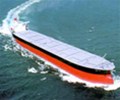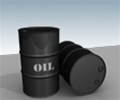Shippers’ Council Condemns Surcharges On Nigerian-bound Cargoes

The Nigerian Shippers’ Council (NSC) has kicked against the surcharges placed on Nigerian-bound cargoes by foreign ship owners.
LEADERSHIP learnt that Nigeria seaports have the highest shipping freight rates in West and Central African countries.
Industry sources said that the high freight rates were fuelled by insecurity, the outsourcing of security architecture to private companies, which charge foreign shipping firms to safeguard their vessels, high turnaround time of vessels and inefficient cargo evacuation caused by traffic congestion on the port access roads.
The listed inefficiencies had reflected in the costs of shipping goods to Nigeria as an analysis on overseas’ cargo and freight costs by MoverDB, an online resource for international shipping, indicated.
In a chat with LEADERSHIP, the executive secretary, Nigerian Shippers Council (NSC), Barr Hassan Bello, said that the surcharges slammed on Nigerian-bound cargoes by foreign shipping companies were responsible for the high freight rate in Nigerian seaports.
According to him, the council is engaging the Global Shippers’ Forum on the inclusion of the council on how the surcharges are arrived at.
He said: “The high freight rate is because of surcharges. These are abnormal charges carriers always place and this could be bunker adjustment, currency adjustment or security, which is called war risk and many others.
“Unfortunately, we are not being able to determine what these charges are and that is why our engagement with the Global Shippers’ Forum is instructive. We are trying to find out what is happening and I am sure most of them are supposed to be temporary because if there is no congestion there is no surcharge.
“We are about to host the Global Shippers Forum in March 2020 where all these issues will be tabled before the foreign shipping companies. There is also the issue of security because when it is reported that there is piracy on our waters, the carriers will take that as an indicator of lack of security. So, we have to be very careful here on how we report attacks but the Nigerian Shippers Council is fighting these surcharges and at least, the council should be part of the decision-making on increasing charges,” he said.
Also, the president, National Association of Government Approved Freight Forwarders (NAGAFF), Increase Uche, called for the establishment of a national carrier to negotiate freight with foreign shipping companies.
According to him, the high freight rate is also fuelled by insecurity and urged the government to stabilise port operations by providing the necessary infrastructure.
His words: “High freight rate is caused by insecurity on our waters and because we don’t own any vessel as a country; if we have vessels today, we can use them to negotiate with other countries that are bringing in cargoes into Nigeria. The freight rate wasn’t as bad as this during the time of the defunct Nigerian National Shipping Line (NNSL) and Nigeria Unity Line (NUL).
Uche maintained that “insecurity is what the multinationals are capitalisingn on. Nigeria is a maritime nation without owning a vessel. So, why will Nigeria be a maritime nation without a vessel? If we have our own vessels, it will make us to become more competitive in shipping business and another thing is for us to understand the issue that culminates in high shipping cost which has to do with the system in operation because the federal government is yet to stabilise the entire system. “
Uche noted that third party outsourcing of security architecture further fuels high freight rates.
He said: “There is no need for outsourcing if the Nigerian Maritime Administration and Safety Agency (NIMASA) as the lead agency to provide and regulate shipping and to ensure safety and the Nigerian Navy is there to help in providing security.
“If they know they can do it seamlessly without involving any third party, that will reduce cost of doing business and even freight charges,” Uche said.
Investigation by LEADERSHIP showed that the cost of shipping 20-foot and 40-foot containers to Lagos ports from New York is the most expensive in the world’s 47 major port destinations.
And the high costs are not based solely on distance. Shipping from New York to Nigeria is nearly double the cost of shipping to South Africa even though Nigeria is closer, by nautical miles, to New York.
It takes $2,542 to import a 20ft container from New York to Cape Town in South Africa and $3,795 for a 40ft container while it takes $4,982 and $7,436 for 20ft and 40ft containers into Nigeria ports respectively.
According to icontainers.com, an ocean freight quotes website, shipping from New York to the port of Douala, Cameroon takes $3,150 for 20ft container and $3,765 for a 40ft container while New York from Nigeria to the neighbouring Cotonou port is $2,811 for 20ft and $3,102 for 40ft.
The website which has over 250,000 ocean freight quotes and get the latest international shipping rates from any carrier said that it costs between $2,811 for 20ft and $3,102 for $40ft container from New York to port of Lome, Togo.
To import fully loaded 20ft and 40ft containers to Ghana Port, Takoradi, importers pay $3,129 for 20ft and $3,659 for 40ft.
Maritime stakeholders have therefore called for a holistic approach to restore sanity in the waters and own vessels for Nigeria to negotiate freight rates with foreign shipping companies.
Source: Leadership

 Hellenic Shipping News Worldwide Hellenic Shipping News Worldwide, Online Daily Newspaper on Hellenic and International Shipping
Hellenic Shipping News Worldwide Hellenic Shipping News Worldwide, Online Daily Newspaper on Hellenic and International Shipping





















 PG-Software
PG-Software